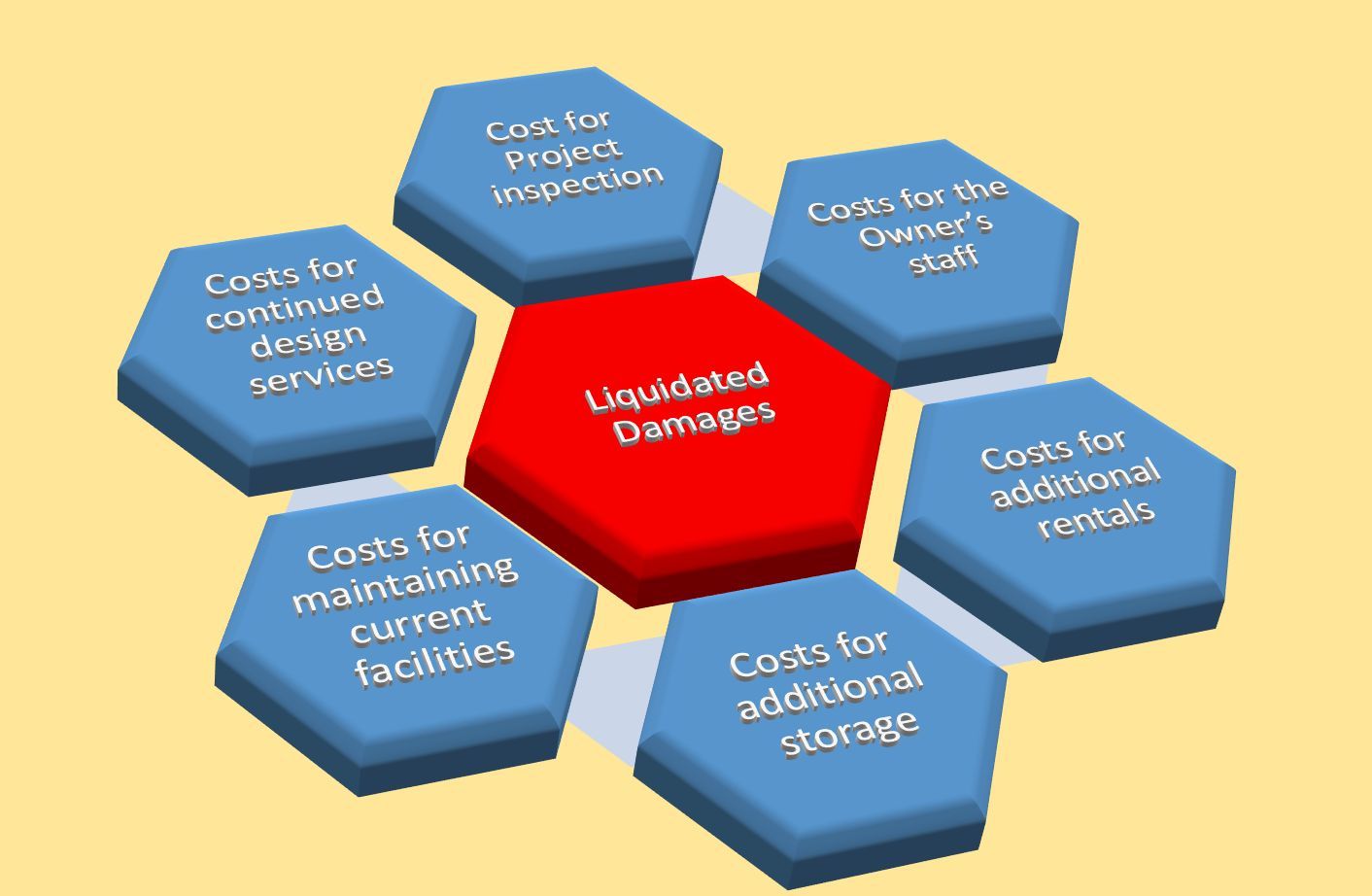The Owner, Contractor, or both may pay more for project delays. After identifying critical delays, delay analysis and liability determine these costs.
Owner damages are either liquidated or actual. Owner damages are recovered similarly to Contractor damages. The Owner receives damages to put them in the same position as if the Contract had been executed as planned.
Owner delay damages may include lost income, alternative facility costs, higher financing costs, prolonged overhead costs, and lost profits. Many prefer liquidated damages over actual damages because these costs are hard to quantify. Before signing, the Contract specifies liquidated damages and their amount.
If a Contractor falls behind schedule, the liquidated damages clause determines whether accelerating the project is cost-effective.
An Owner should consider these factors when estimating liquidated damages:
✅Project inspection costs
✅Design services continue
✅Owner staff costs
✅Maintenance costs for current facilities
✅Extra rental costs
✅More storage costs
✅Revenue loss
✅Facility unavailability costs the public.
✅Additional moving costs
✅Escalation costs
✅Finance costs
#ConstructionContracts hashtag



Comments ()